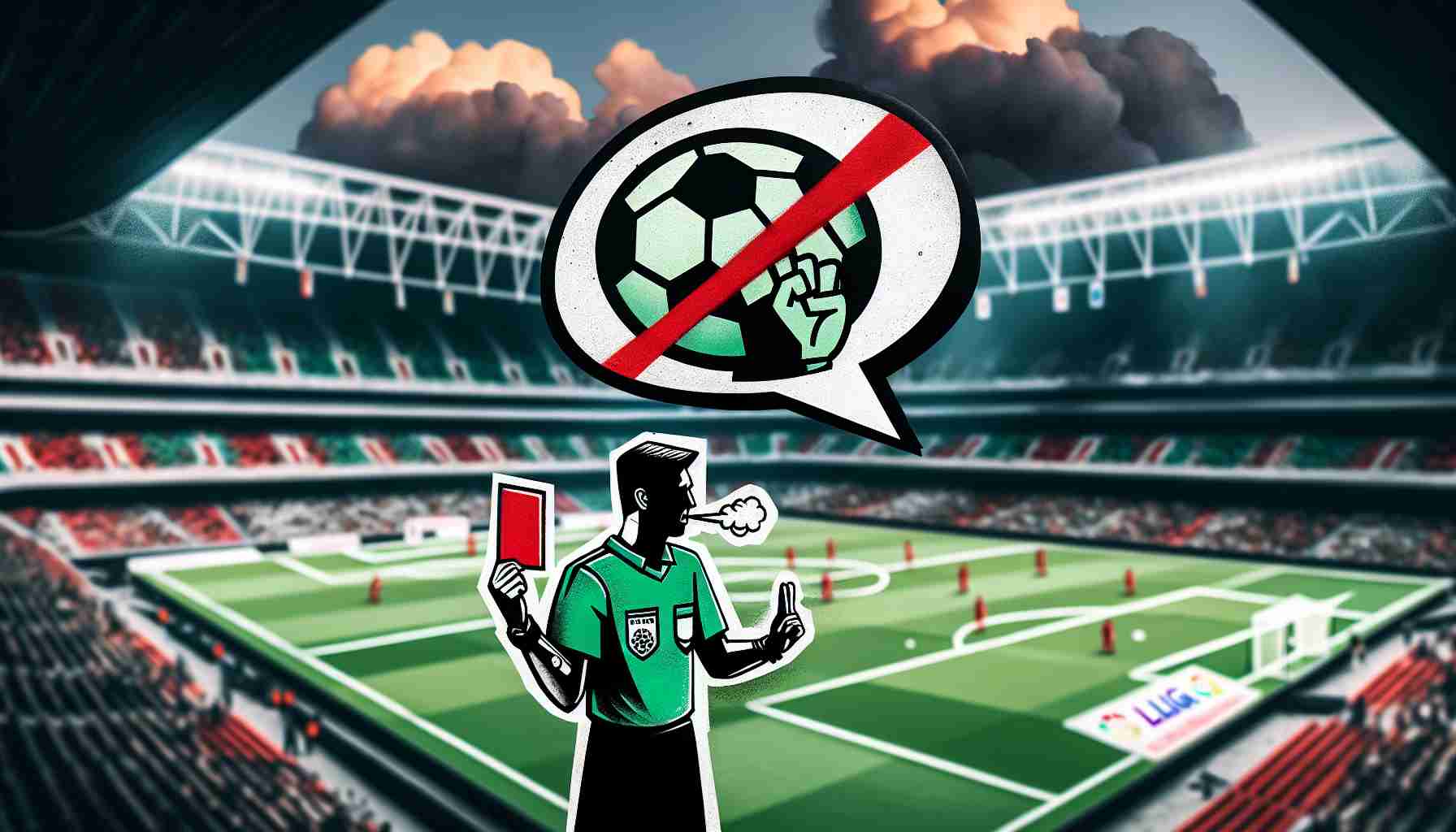In light of the disturbing incidents that occurred during a recent match at the Cívitas Metropolitano, La Liga de Fútbol Profesional has initiated proceedings to address the situation. The organization submitted a formal complaint to both the Competition Committee and the Anti-Violence Commission, highlighting the offensive chants that surfaced from the crowd throughout the game.
Documented evidence revealed a total of 16 offensive chants, primarily originating from a section of the Atlético Madrid supporters. Among these were derogatory phrases directed at rival fans and individual players, with some chants promoting violence and exhibiting xenophobia. Noteworthy incidents included inflammatory remarks directed specifically at players and insults aimed at the rival team’s supporters.
Additionally, there were two notable chants from visiting fans that expressed disdain towards the home team. These chants, marked by a tone of mockery, were sung in reference to past sporting defeats.
In response to these events, La Liga has not only condemned the behaviors but also acknowledged the preventive measures taken by the Atlético Madrid club. These included thorough security checks, strategic placement of surveillance cameras around the stadium, and a public address announcement aimed at promoting anti-racism before the game commenced. Such actions highlight La Liga’s commitment to fostering a respectful and inclusive environment in football.
La Liga Takes Further Steps Against Offensive Chants in Football Stadiums
In the wake of recent incidents that have cast a shadow over the atmosphere of football matches in Spain, La Liga is intensifying its efforts to address the prevalence of offensive chants that disrupt the integrity of the sport. The commitment to create a more inclusive and respectful environment goes beyond simple reprimands; it seeks to implement long-term solutions.
What are the main objectives of La Liga’s actions?
The main objective is to eradicate the use of abusive language and discriminatory behavior during matches. La Liga aims not only to punish offenders but also to educate fans about the impact of offensive chants and to promote a culture of respect within the sport.
What are the key challenges associated with this initiative?
One significant challenge is the deeply rooted culture of “ultra” groups within Spanish football. These organized supporters are known for their passionate yet often controversial behavior. Changing this established culture poses a considerable hurdle. Additionally, law enforcement and regulations must be enforced uniformly across various clubs, which may vary in their willingness to cooperate.
Another challenge is the identification of offenders. Many chants are spontaneous and can be difficult to attribute to individual supporters, complicating the enforcement of sanctions.
What are the advantages and disadvantages of La Liga’s approach?
Advantages:
1. Promotion of Inclusivity: Efforts to curb offensive behavior support a more welcoming environment for all fans, potentially increasing attendance and viewership.
2. Corporate Responsibility: By taking a stand against discrimination, La Liga enhances its reputation and aligns with broader societal values.
3. Fan Education: Campaigns that educate fans about the implications of their words can lead to a cultural shift in stadium behavior over time.
Disadvantages:
1. Potential Alienation of Fans: Certain factions of the fanbase may feel targeted or marginalized, leading to potential backlash against La Liga’s initiatives.
2. Implementation Costs: Additional security measures and educational campaigns require financial investment, which may strain club resources.
3. Effectiveness Over Time: Changing entrenched behaviors can take years, and the effectiveness of initial measures may not be immediately visible.
Addressing Controversies: What is the role of club management?
Club management plays a crucial role in enforcing anti-discrimination policies. Some clubs have been more proactive than others in addressing these issues, leading to inconsistencies in how fans are policed. Clubs must foster a collaborative atmosphere with La Liga to ensure compliance while also engaging with their supporters to promote a unified stance against offensive chants.
What measures are being considered for enforcement?
La Liga has proposed a range of measures, including imposing fines on clubs whose fans engage in offensive chanting, increasing match-day surveillance, and introducing community engagement initiatives to build a positive rapport between fans and the league’s administration.
As La Liga continues to tackle the challenge of offensive chants, maintaining an open dialogue with fans and stakeholders will be vital. The overall goal is to ensure that football matches remain a source of joy and unity rather than contention and discrimination.
For more information on La Liga’s commitment to social issues, visit La Liga.









